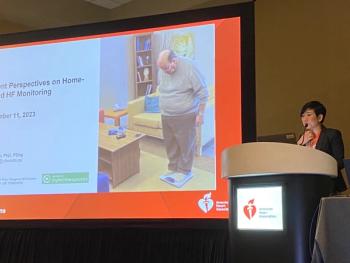
New payment methods drive advanced claims processing
Real-time, on-site claims processing will become as common as point-of-service transactions in other industries.
Key Points
NOT SO LONG AGO, Roland A. Goertz, MD, waited more than two or three months to see reimbursement for services rendered. However, Dr. Goertz, president of the American Academy of Family Physicians, envisions that real-time, on-site claims processing will become as common as point-of-service transactions in other industries.
"At the end, you would submit claims via electronic protocols, they would be immediately transacted, and payment for services would be done in 24 hours as an automatic deposit to the bank account," he says.
BI-DIRECTIONAL CLAIMS ADJUDICATION
The increased use of technology is allowing some commercial carriers to offer bi-directional claims adjudication so that claims can be electronically verified, adjudicated and approved.
Further, the number of claims that were automatically adjudicated-without manual intervention-more than doubled from 37% in 2002 to 75% in 2009, according to America's Health Insurance Plans. That's in large measure because more claims are being processed electronically; 82% of claims were electronic in 2009 versus 44% in 2002. And the data shows that electronic submissions work, as 80% of 227 million claims filed in 2009 could be automatically adjudicated, compared with just 37% of those submitted on paper.
A few of the bigger plans, including Humana, Aetna and UnitedHealthcare, take that bi-directional capability a step further and offer real-time adjudication, says John Hallock, corporate communications director for athenahealth. But there are problems on the other end. Humana says that most providers aren't ready to submit bills for at least two days after the delivery of care, their practice management systems are unable to submit claims in real time, and most clearinghouses can't transmit provider claims in real time.
Humana's solution has been to work with practice management systems and clearinghouses to develop an integrated real-time adjudication solution. The system allows claims to be fully adjudicated in less that one minute, so physicians can collect the patient's share at the time of service.
Such access to real-time data means that a provider can give patients a statement listing the total cost of their service, including their co-pay, deductible and out-of-pocket expense at the time of their appointment. This means fewer delays, fewer overdue balances and less time chasing patients for payment later.
Newsletter
Get the latest industry news, event updates, and more from Managed healthcare Executive.























